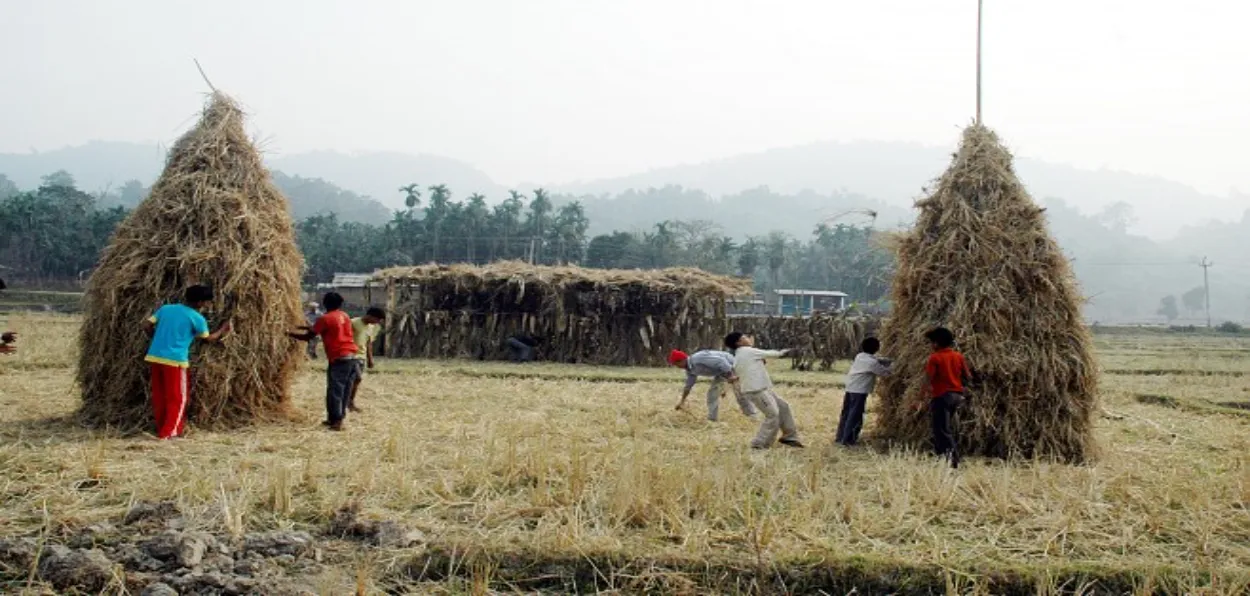
Zafri Mudasser Nofil
Uruka is the night that awakens the spirit of Magh or Bhogali Bihu and its warmth radiates not just from the crackling bonfires or meji but also from the traditional feast laid out with love.
A celebration of harvest, Uruka on the night of January 14 is an occasion that also signifies community attachment and bonhomie among Hindus and Muslims.
Women weave palatable magic with humble ingredients in the kitchens. As this night of feasting approaches, the air thrums with the rhythmic pounding of rice that is soon transformed into delicate Pitha or rice cakes.
Pitha is a crispy, sweet delight with nutty goodness and its main ingredient is Bora saul, the glutinous rice variety native to Assam. Another must-have is laru or sweet mounds of coconut or sesame with sugar and jaggery that melt on the tongue with a sugary sigh.
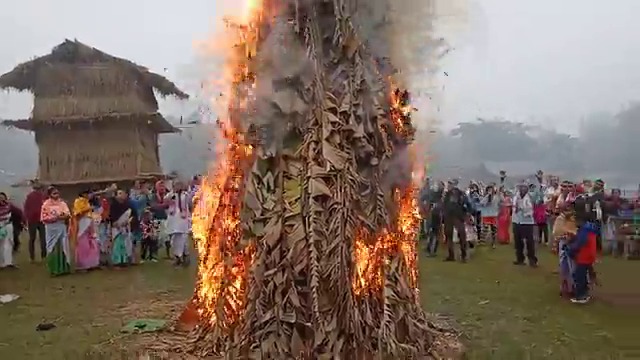
Meji turns into a bonfire for a village community
Men of the family construct Bhelaghor, a temporary hut made of bamboo and thatch, and also erect haystacks for meji that stands as a symbol of gratitude to the sun. Every knot and every twist is like a silent prayer of thanks for the sun's bounty, the land's generosity, and the harvest gathered.
No Uruka feast or bhuj is complete without fish and the idea is simple: the bigger, the better. People of Assam love fish and throng markets to get the best of Chitol, Rohu, Bahu, Sol, Borali, and Ari among other big varieties. Many also try to get their catch from rivers and ponds. Duck and pigeon meat are other delicacies people have besides chicken and pork.
So, a typical Uruka plate will have rice (preferably Joha), dal (maati maah or Urad), a couple of pitika (mashed potato and tomato), duck meat with kumura (ash gourd), fish fry, fish curry, chicken curry, and veggies.
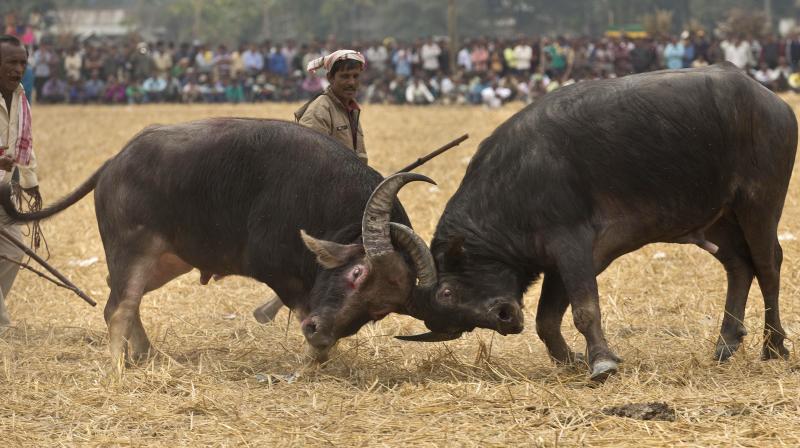
Bull fight during Uruka in the cvountryside
As the feast progresses, laughter and stories, songs, and dance mingle with it as people sit around a campfire and barbecue potatoes, fish, and meat. Elders, the keepers of ancestral wisdom, regale with tales of past Uruka while young voices paint visions of hopeful futures.
Many stay awake throughout the night and at dawn, take a bath, burn the meji which is seen as a towering symbol of hope, and offer prayers. Uruka's Meji is more than a temporary structure; it's a testament to the Assamese spirit, a beacon of gratitude and hope.
It reminds us of our deep connection to the land, the rhythm of seasons, and the spirit of community. It's a fire that burns not just with joy, but also with the promise of a new beginning, a seed planted in the ashes of the old, waiting to sprout with the dawning of spring.
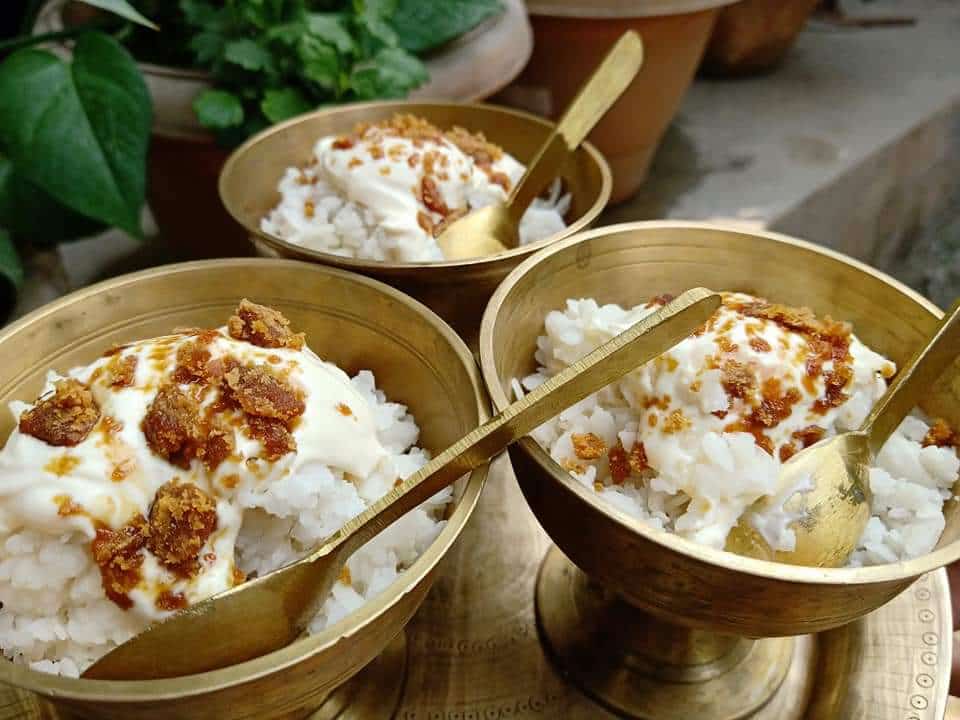 Food served on the day of Uruka
Food served on the day of Uruka
The next day is the main Bagh Bihu. Breakfast is another elaborate affair. The jolpan consists of Bora saul, kumol saul or soft rice, sira or flattened rice, handoh or roasted rice powder to be had with curd or milk, various types of pitha, and, of course, tea.
Having stayed in Delhi-NCR for 20 years, I have been attending Uruka nights organised by various Assamese organisations or doing it at home with family and friends. But I long for that rustic touch that is associated with Uruka in Assam.
I miss those days when my friends in the neighbourhood got busy making the preparations days ahead of Uruka. We also had an additional task: to keep a watch and guard the poultry in our households and the bamboo fencings as it was a tradition to steal these items, albeit as a fun activity, for the bhuj or feast.
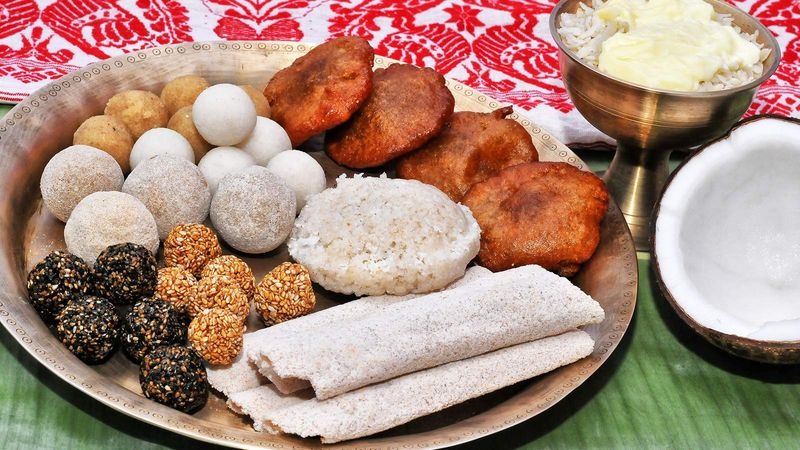 A typical Uruka platter
A typical Uruka platter
Also, in those pre-mobile phones and pre-selfie eras, we took great pride when we got a chance to flaunt in front of our friends big fishes bought from the market by our elders.
Uruka's feast is a communion with the land, a celebration of community, and a testament to the Assamese spirit. It's a night where flavours are plenty, stories shimmer in the firelight, and the soul of Assam awakens with a renewed beat.
ALSO READ: Manikut festival: Festival at Hajo celebrates Assam's harmony
So, as Uruka approaches, I hope to celebrate not just the bounty of my land, but the bounty of human connection.
(The writer is a senior journalist with Press Trust of India in New Delhi and author of "The Identity Quotient: The Story of the Assamese Muslims")
